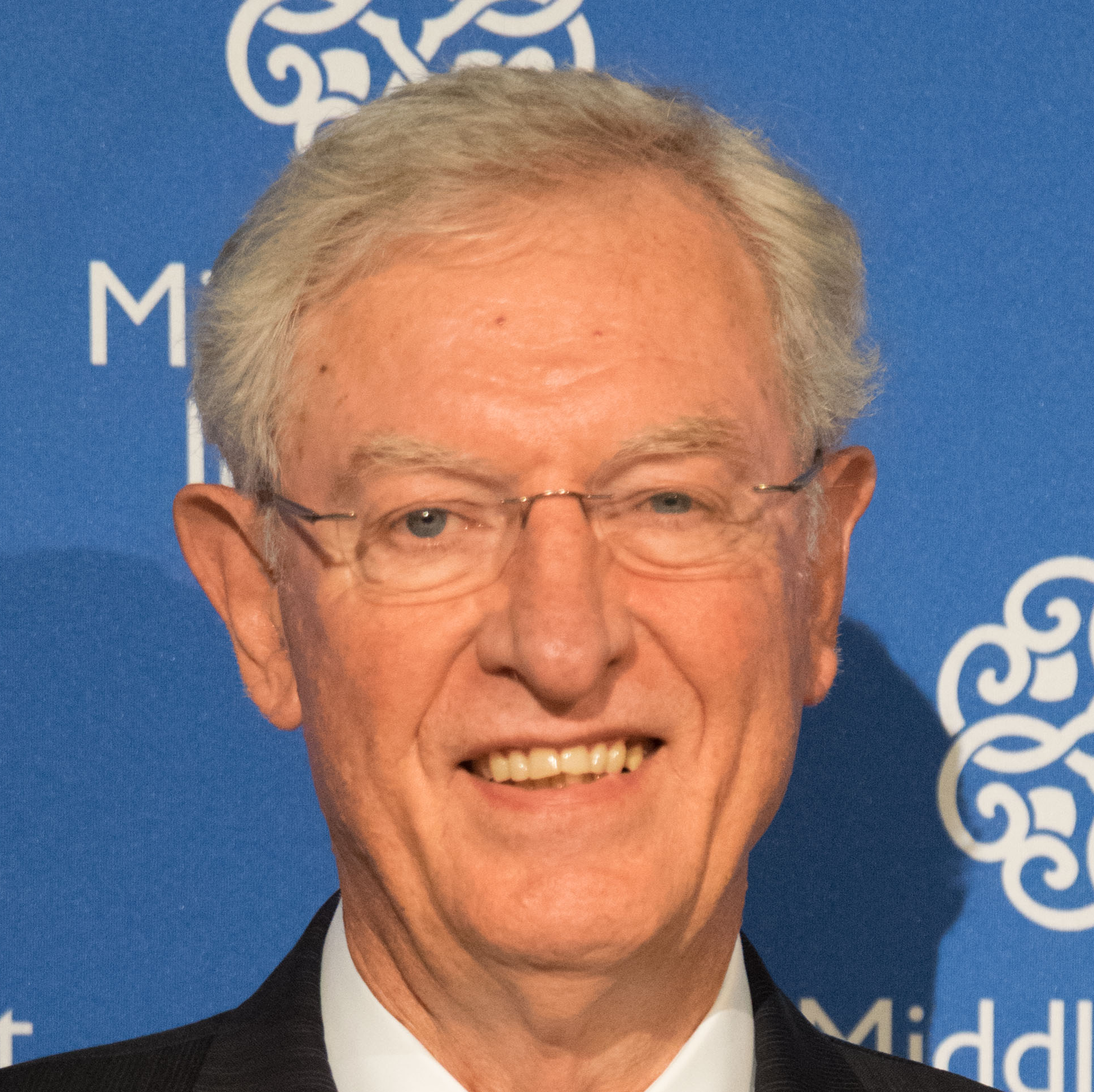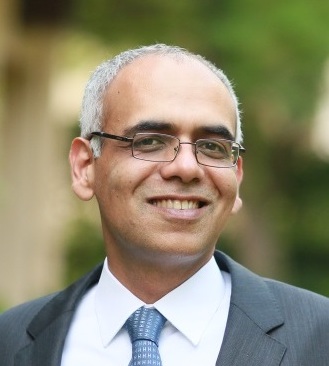Contents:
- The Biden administration returns to Saudi Arabia
- The US needs to be direct and clear about Turkey
- US adopts additional sanctions on Sudan
- Pakistan’s relations with Iran are warming up
The Biden administration returns to Saudi Arabia
Brian Katulis
Vice President of Policy

-
Secretary of State Blinken’s visit to Saudi Arabia is yet another indication that the Biden administration continues to ignore domestic voices calling for “restraint” in the Middle East or advocating downgrading U.S.-Saudi ties.
-
The effort to update U.S.-Saudi ties is long overdue, and the two countries need to craft a “Vision 2030” for their bilateral relationship to match the efforts Saudi Arabia is currently undertaking to remake its economic and social agenda at home.
U.S. Secretary of State Antony Blinken travels to Saudi Arabia this week, another senior-level visit to the kingdom just weeks after President Joe Biden’s national security advisor, Jake Sullivan, flew there in May.
Blinken’s visit is yet another indication that the Biden administration continues to ignore the voices on the fringes of America’s debate calling for “restraint” in the Middle East or advocating downgrading ties with Saudi Arabia. And it also offers some hints of what the United States is trying to achieve in its overall engagement in the Middle East.
The secretary’s travel itinerary will center on two main events in Saudi Arabia. On Wednesday, Blinken will participate in the U.S.-Gulf Cooperation Council Ministerial meeting; and the next day, he and Saudi Foreign Minister Faisal bin Farhan will co-host a meeting of the Global Coalition to Defeat ISIS. In addition, Blinken will likely have conversations with Saudi officials on a long list of important issues in the bilateral relationship: Iran, efforts to end Yemen’s war, human rights, the prospects for normalization of relations between Saudi Arabia and Israel, as well as efforts to broaden and diversify U.S.-Saudi cooperation beyond the energy and defense sectors.
In advance of the trip, Deputy Assistant Secretary of State for Arabian Peninsula Affairs Daniel Benaim and Deputy Special Envoy to the Global Coalition to Defeat ISIS Ian McCary offered some insights to journalists about what to expect from the trip. Benaim dodged journalists’ questions about some specifics in the bilateral relationship, responding several times, “I don’t want to preview the Secretary’s private conversations and don’t have anything specific on this for you.”
But Benaim did articulate a clear strategic rationale for continued U.S. engagement with Saudi Arabia, reiterating a theme of President Biden’s message to the region on his visit to Jeddah last summer: “We will not leave a vacuum for our strategic competitors in the region.”
The efforts to advance de-escalation and foster regional integration in the Middle East will take some time given the current broader geopolitical context and the complicated countervailing trends within the Middle East. But as my colleagues and I outlined in this recent Middle East Institute report, a deeper diplomatic engagement by the United States is likely to produce better outcomes in the long run than simply washing our hands and pulling back from the region.
Blinken’s visit to Saudi Arabia will likely receive criticisms from some voices in America’s debate no matter what its outcomes. This is to be expected, given the complex issues and emotional advocacy campaigns that have animated the U.S.-Saudi bilateral relationship. Still, the Biden administration is doing the right thing in seeking to deepen and broaden its engagement with Saudi Arabia, given the important role the latter plays across the region and how it is positioning itself in the new global landscape. The effort to update U.S.-Saudi ties is long overdue, and the two countries need to craft a “Vision 2030” for their bilateral relationship to match the endeavors Saudi Arabia is currently undertaking to remake its economic and social agenda at home.
Blinken’s visit this week offers another chance for the U.S. to work with Saudi Arabia to craft a new bilateral relationship that deals with shared threats and seizes new opportunities, all while keeping open a channel for discussing the things that divide the two countries.
Follow on Twitter: @Katulis
The US needs to be direct and clear about Turkey
W. Robert Pearson
Non-Resident Scholar

-
President Erdoğan probably will double down on his strong nationalist leadership at home, while there likely will be no meaningful change in Turkey’s foreign policy abroad.
-
But the West has options. Turkey’s non-aligned stance could release the West from many obligations to Ankara and open the door to new coalitions without it.
Three likely realities will shape future relations between Turkey and the United States. These may seem pessimistic, but as Mark Twain observed: a pessimist is a well-informed optimist.
First, domestically, President Recep Tayyip Erdoğan probably will double down on his strong nationalist leadership. He wants to eliminate political opponents in control of Turkey’s major cities in the municipal elections next March and avoid attention to the country’s many unsolved problems. To do so requires being tough at home and tough overseas.
Second, there likely will be no meaningful change in foreign policy. Erdoğan thinks his post-election international position is stronger and that the West is in decline. His authoritarianism and anti-Western rhetoric highlight Turkey’s non-aligned status. Russian President Vladimir Putin’s election day praise of his “dear friend” Erdoğan’s “independent foreign policy” still rings in Western ears. Erdoğan’s refusal to join the 40 European leaders who gathered together in Moldova on June 1 makes clear that Turkey has separated itself from the present European community’s aims and processes regarding continental security.
Third, the West has options. Turkey’s non-aligned stance could release the West from many obligations to Ankara. Erdoğan’s absence from the European summit in Chisinau now opens the door to coalitions without Turkey. There will be consequences if Turkey spurns Sweden and its membership bid at the North Atlantic Treaty Organization (NATO) summit in Vilnius in July. The U.S. sale of F-16s will be in peril. NATO allies individually may decide to tighten defenses with Sweden without regard to Turkish views. The Turkish election solved none of Ankara’s serious structural economic problems. Russia cannot fill the gap, though China may offer to do so. The reforms, however, can only work under an International Monetary Fund program, and the West will be key to those discussions.
Across the gamut of issues with Turkey, a policy of coaxing Ankara into doing the right thing will fail. The Turks are sharp negotiators, and when they see that their counterparts want the solution more than Turkey does, they simply raise the stakes.
One final point: U.S. Treasury Secretary Janet Yellen on April 20 told the Chinese that for Americans, human rights is a “foundational” principle. If we can explain that to Beijing, we can explain it to Ankara. It is not acceptable to treat Turkey as just another country where dismantling constitutionalism and flaunting the rule of law is of no particular concern.
US adopts additional sanctions on Sudan
David H. Shinn
Non-Resident Scholar

-
U.S. Treasury’s Office of Foreign Assets Control (OFAC) added to its list of sanctioned Sudanese companies two firms that manufacture small arms, conventional weapons, ammunition, and military vehicles for the SAF as well as two RSF-affiliated companies that have aided the war effort.
-
Though they send a clear message, the latest sanctions will not have much effect on the course of the Sudanese conflict, because the sanctioned firms have little exposure to the American financial system and enforcement will require cooperation from countries like Russia and the UAE.
Negotiations organized by Saudi Arabia and the United States to stop the fighting between the Sudanese Armed Forces (SAF) and the paramilitary Rapid Support Forces (RSF) broke down last week as neither side demonstrated any willingness to observe a cease-fire. Serious fighting resumed in Khartoum and in the western region of Darfur. In response, Washington imposed a new set of sanctions on the SAF and the RSF.
The U.S. Treasury Department’s Office of Foreign Assets Control (OFAC) added the SAF’s Defense Industries System and Sudan Master Technology to its list of sanctioned companies. Together, the two firms manufacture small arms, conventional weapons, ammunition, and military vehicles for the SAF. OFAC also added to the sanctions list the RSF-affiliated Al Junaid Multi Activities Company, which is engaged in gold mining, and Tradive General Trading Company, which is based in the United Arab Emirates and procures weapons for the RSF. For example, Tradive reportedly purchased a fleet of Toyota pickup trucks, which the RSF employs in the current conflict as so-called “technicals,” mounted with heavy caliber weapons in the back. In addition, the State Department placed visa restrictions on unnamed officials from both the SAF and the RSF.
These modest sanctions follow far more significant ones imposed in October 2021, after the military coup that toppled the post-Omar al-Bashir civilian-led transitional government established in August 2019. As part of its response, the United States froze $700 million in direct assistance to Sudan’s government and suspended debt relief. It also supported decisions by the World Bank and the International Monetary Fund to halt $6 billion in assistance and plans to forgive $50 billion of debt. Yet those major sanctions failed to achieve a return to civilian government or to prevent the outbreak of conflict on April 15, 2023, between the SAF and the RSF.
There is little reason to believe the latest sanctions will have much effect on the course of the Sudanese conflict. The sanctioned companies have few if any direct connections to American commercial or financial institutions. Effective action against them depends on the cooperation of countries such as the UAE and Russia. Although it might be possible, for example, to halt future purchases by the RSF of Toyota pickup trucks, it could obtain similar vehicles from other sources without difficulty. It is also highly unlikely that any members of the SAF or RSF have plans to visit the U.S. The sanctions send an important message from Washington, but they have major practical limitations.
Follow on Twitter: @AmbShinn
Pakistan’s relations with Iran are warming up
Syed Mohammad Ali
Non-Resident Scholar

-
Pakistani Prime Minister Sharif met Iran’s President Raisi in May to officially inaugurate the first border market and an electricity transmission line to bring 100 megawatts of cheap Iranian electricity to Gwadar; at the same time Islamabad is permitting barter trade for over 26 commodities with Iran.
-
Such moves indicate that Pakistan is serious about boosting cooperation with Iran, even if it risks further straining ties with the U.S.
Iran was one of the first countries to officially recognize Pakistan’s sovereign status after the partition of the Indian subcontinent in 1947. Imperial Iran and Pakistan also enjoyed close ties due to their coinciding strategic outlooks and participation in Cold War alliances, initially within the 1955 Baghdad Pact, which then became the Central Treaty Organization in 1959, after Iraq left this grouping. Pakistan’s relations with the post-1979 Shi’a theocratic government in Iran, however, became strained, even though Pakistan has one of the largest Shi’a populations in the world.
For decades afterward, Pakistan was a battleground for proxy Shi’a-Sunni rivalry between post-revolution Iran and the Kingdom of Saudi Arabia, which triggered lingering sectarian violence in the country. Moreover, Pakistan and Iran backed opposing sides in Afghanistan after the withdrawal of Soviet forces in 1989. With Saudi approval, Pakistan enabled the largely Pushtun and Sunni Taliban’s rise to power, whereas Iran worked with India to support the multiethnic Northern Alliance, which resisted the Taliban. Finally, another source of bilateral friction has been due to the flow of militants and smuggling across Iran and Pakistan’s roughly 560-mile shared border.
The two countries have, nonetheless, sporadically sought to improve ties and boost their meager economic relations. In the mid-1990s, Iran proposed creating a natural gas pipeline that could supply Iranian volumes to both India and Pakistan. Yet as Indian relations with the United States began warming up and its rivalry with Pakistan showed no signs of improvement, India decided to pull out of this deal in 2008. Pakistan persisted with plans to import gas from Iran to address its energy crisis, but it has not yet completed its portion of the pipeline, in large part due to American sanctions.
China’s own plans to include Iran in the Belt and Road Initiative (BRI) in 2021, presumably to counter Indian investments in the Iranian port at Chabahar, could serve as a catalyst for trilateral cooperation between Iran, China, and Pakistan. And Beijing’s role in brokering a resumption of ties between the Saudis and Iranians earlier this year removed another impediment for Islamabad to enhance ties with Tehran, without incurring the displeasure of its Saudi benefactors.
Pakistani Prime Minister Shehbaz Sharif, thus, met Iran’s President Ebrahim Raisi late last month to officially inaugurate the first border market to enhance retail trade between the neighboring states. The two leaders additionally inaugurated an electricity transmission line to bring 100 megawatts of cheap Iranian power to the Pakistani province of Gwadar, where an important Chinese-managed deep-sea port is also located.
Given its dwindling foreign exchange reserves, Pakistan has now passed a special order allowing barter trade with Iran (as well as Afghanistan and Russia) for 26 commodities, including petroleum and natural gas. Such moves indicate that, this time, Pakistan is serious about boosting cooperation with Iran, even if it risks further straining ties with the U.S.
Photo by KHALED DESOUKI/POOL/AFP via Getty Images
The Middle East Institute (MEI) is an independent, non-partisan, non-for-profit, educational organization. It does not engage in advocacy and its scholars’ opinions are their own. MEI welcomes financial donations, but retains sole editorial control over its work and its publications reflect only the authors’ views. For a listing of MEI donors, please click here.













